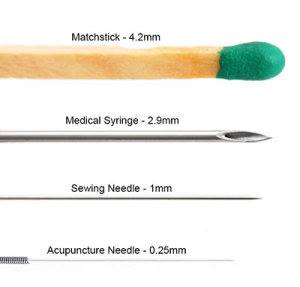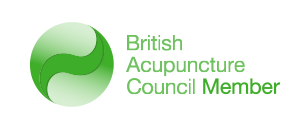Acupuncture FAQs
If you can’t find the answer to your question here, contact Ric.
That depends on your individual condition. At first your acupuncturist will normally ask to see you once or twice a week. You may start to feel benefits after the first or second treatment although long-standing and chronic conditions usually need more time to improve. Once your health has stabilised you may need top-up treatments every few weeks. Traditional acupuncture is also very effective when used as preventive healthcare, and many people like to go for a ‘retuning’ session every month, or at the change of each season throughout the year.
No. Occasionally points on the back, upper chest or abdomen may be used and it will be necessary to remove the outer layers of clothing, but the majority of commonly-used acupuncture points are on the hands and arms, and feet and lower legs. Therefore treatments may often involve just removing shoes and socks.
Yes. Children and adolescents usually respond very well to acupuncture. Many acupuncturists specialise in paediatric care.
Most people find acupuncture to be very relaxing. Patients often describe the needle sensation as a tingling or dull ache. This is one of the signs the body’s qi, or vital energy, has been stimulated.
Yes. Certain styles like Japanese acupuncture use needles that do not break the skin or are inserted extremely lightly. Acupuncture needles are very much finer than the needles used for injections and blood tests. You may not even feel them penetrate the skin and once in place they are hardly noticeable.
Try not to have a large meal within an hour of your appointment as the process of digestion will alter the pattern of your pulse, and you may need to lie on your stomach. You should also avoid alcohol and food or drink that colours your tongue such as coffee or strong tea. It is a good idea to wear loose-fitting clothes so that the acupuncture points, especially those on your lower limbs, are easily accessible.
You are likely to feel relaxed and calm. If the treatment has been particularly strong you may feel tired or drowsy and it is worth bearing this in mind if you plan to drive or use any other machinery soon afterwards. You should refrain from vigorous exercise after treatment and, ideally, give yourself a little time to rest. It is also advisable not to drink alcohol for several hours after treatment.
Acupuncture has virtually no unpleasant side effects. Any that do occur are mild and self-correcting. Occasionally there may be minor bruising at the needle point or a short-term flare-up of your symptoms as your qi clears and resettles. Chinese massage techniques (such as Gua Sha) can sometimes temporarily mark the skin. Such bruising is painless and generally clears within a day or two.
If you are currently receiving treatment from your doctor it is sensible to mention that you plan to have acupuncture. Your acupuncturist will need to know about any medication you are taking as this may affect your response to the acupuncture treatment.
Yes. The acupuncture treatment may enable you to reduce or even stop taking some forms of medication but you should ALWAYS consult your doctor regarding any change of prescription. DO NOT stop taking medication without professional guidance.
For further reading, the British Acupuncture Council’s list of fact sheets provides accurate and unbiased information for a wide variety of conditions.
General FAQs about Ric and Acupuncture Cheltenham
Ric qualified as an acupuncturist in 2010 with a First Class Honours degree from the College of Traditional Acupuncture in Warwick
He is a registered member of the British Acupuncture Council – membership denotes that a practitioner has completed extensive training in Traditional Acupuncture at an approved college.

Meet Ric Malkinson
BA (Hons) Lic.Ac. MBAcC
After being introduced to Traditional Acupuncture in Cheltenham 2002, Ric became fascinated with its theory and tradition – with the simplicity of the Yin/Yang and Five Element concepts, and with the thousand-year history of an effective drug-free medicine. In 2010 Ric completed a three year degree in Traditional Acupuncture at the College of Traditional Acupuncture in Warwick, qualifying with First Class Honours. He is a member of the British Acupuncture Council (BAcC)

